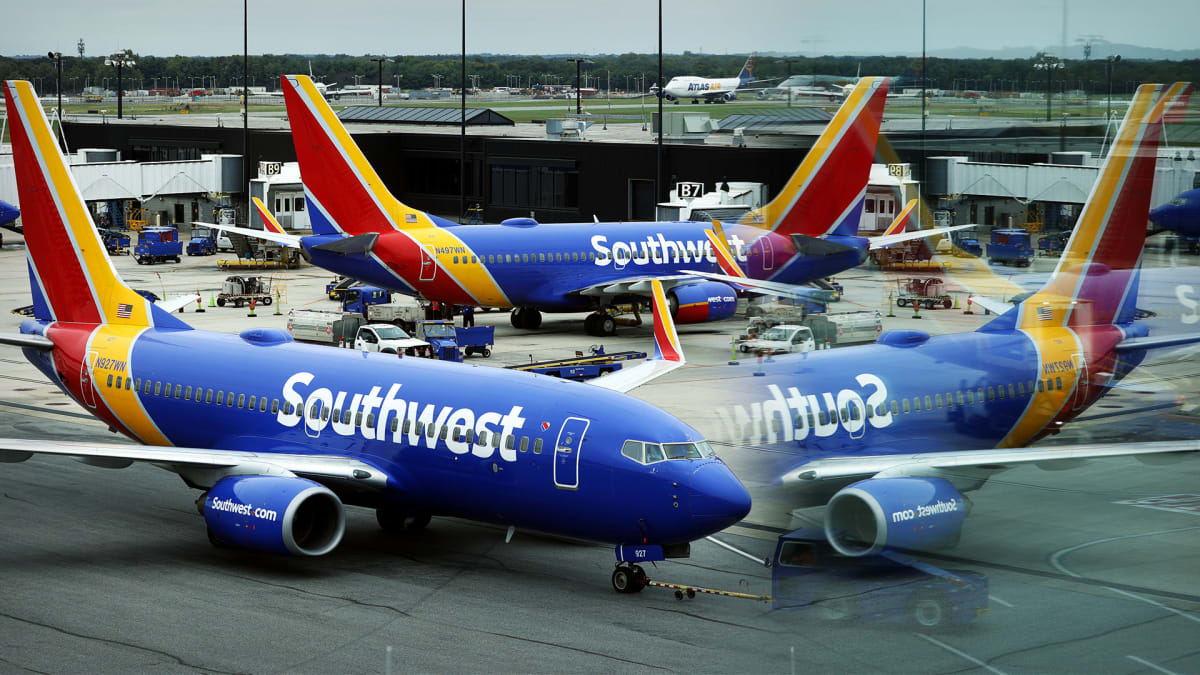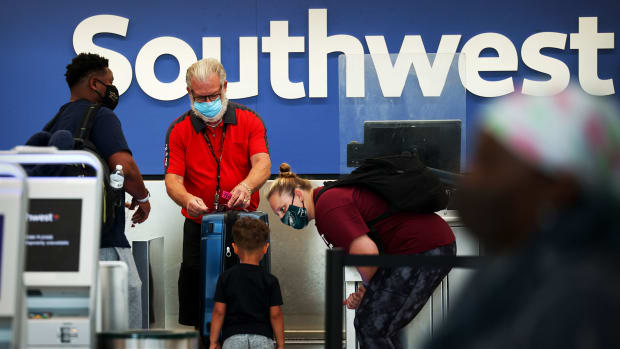
Southwest has a problem.
You know, I know it. President Joe Biden knows it, and so does “Saturday Night Live,” if its recent parody is any indication.
But does Southwest CEO Robert Jordan know it? Or to be more precise, does he know what the problem actually is?
Because based on a recent fourth-quarter earnings call, it's not clear if the executives running the widely criticized airline know exactly what the root cause of their recent headaches truly are. Or maybe they don’t want to own up to it.
Southwest Has A People Problem
As you are doubtlessly aware of, Southwest (LUV) ruined a ton of people’s holidays last December.
After America was hit with a massive winter storm, Southwest began canceling or massively delaying flights, including nearly 75% (or 4,000 domestic flights) on the day after Christmas alone. During the time period between Christmas and New Year’s, more than 16,700 flights were affected, which could end up costing Southwest $825 million, at least.
But weather storms don’t discriminate or have any particular opinions about airlines. Every other carrier was able to ride out the storm, as it were, and get people to their holiday destinations, while Southwest massively crumbled under the pressure.
This was all, seemingly, completely avoidable, as many airline experts have pointed out. Starting last year, which was around the time when Jordan took over, Southwest employees have been picketing and trying to draw attention to what they allege has been management’s prioritizing spending money on bonuses for executives and dividends on stockholders, rather than spending money to make the airline operate efficiently.
The airline industry as a whole has been struggling to recruit and train enough people to replace the talent that either retired early during the pandemic, or took a buyout. It’s been especially difficult for the industry to hire enough pilots, as there aren’t enough experienced hands around to train them, but from flight attendants to help desk attendants, nearly every segment was understaffed.
While many airlines have been making an effort to recruit enough talent, the labor market remains tight, and the shortage is expected to continue this year.
That said, many airlines have accepted that the only way to fix the problem is to throw money at it, and are making an effort to get staffed up as quick as possible, as American Airlines has given pilots raises and in some cases a temporary 50% pay hike, while Alaska Airlines and United Airlines have both opened flight training school and are offering financial aid to help defray the cost.
Meanwhile, Southwest has been criticized for both not spending enough to recruit talent, and also for not spending enough to replace the company’s badly outdated flight scheduling software.
As Dan Gellert, chief operating officer at the online travel agency Skiplagged recently told The Street, "the biggest lesson learned is that you need to continually be investing for the future. Southwest is notorious for always being very cost-focused so that they can maximize the returns for Wall Street.
"This resulted in their relying on a decades-old scheduling software system. At the end of the day, this was going to break at some point, with travelers bearing the impact.”

Kevin Dietsch/Getty Images
Does Southwest Know It Has A Problem?
Jordan has been on the public apology tour of late, sending an email to customers acknowledging how badly the airline screwed up and offering to do better. Specifically, he said the company will “spend more than $1 billion of our annual operating plan on investments, upgrades, and maintenance of our IT systems” and is working to establish “supplemental operational staffing that can quickly mobilize to support Crew recovery efforts.”
But in a recent fourth-quarter earnings call, as reported by The Motley Fool, it's not clear if the right lessons have been learned.
Jordan started off the call by acknowledging that “we're disappointed to report a Q4 net loss as we were on track to produce a healthy fourth-quarter profit prior to December the 21st,” and then added “we are intensely focused on reducing the risk of repeating that type of operational event again like we had last month, and we are highly focused on our customers and our plan going forward. And customer refunds and reimbursements remain a top focus.”
Southwest is so understaffed that during the last two holiday seasons, corporate employees were called in to work at airports to cover for the gaps, and a leaked memo cited the company’s shortages at its Denver location, declaring a "state of operational emergency" because of an "unusually high number of absences" of Denver-based ramp employees.
But Southwest stresses that staffing is not an issue, and that criticisms about the company’s priorities being out of whack are simply untrue, with Jordan flatly saying “there's been no lack of investment,” and instead argued it was a one-time problem, a calamity the company could not have predicted:
“This was a significant event. We disrupted thousands and thousands of customers at a critical point in time and really made a mess here for our employees and our customers.”
Specifically, Jordan pushed back on the whole “Southwest doesn’t have enough pilots” thing, saying “we actually feel the opposite. Number one, the event in December really had nothing to do with staffing. We were fully staffed.
“In fact, we hit our -- we beat our hiring goals in 2022. A lot of that is set up for our 2023 capacity. We're having no trouble hiring, including having no trouble hiring pilots. Almost all of the capacity in 2023 is going into restoring the network.”
Has Southwest been unfairly criticized, or is the company trying to minimize its problems? Ultimately, its up to customers to decide if they still trust the company enough to give them a chance, but it certainly seems like Southwest won’t acknowledge one of its main problems, which makes it difficult to see them winning back the public’s trust.







